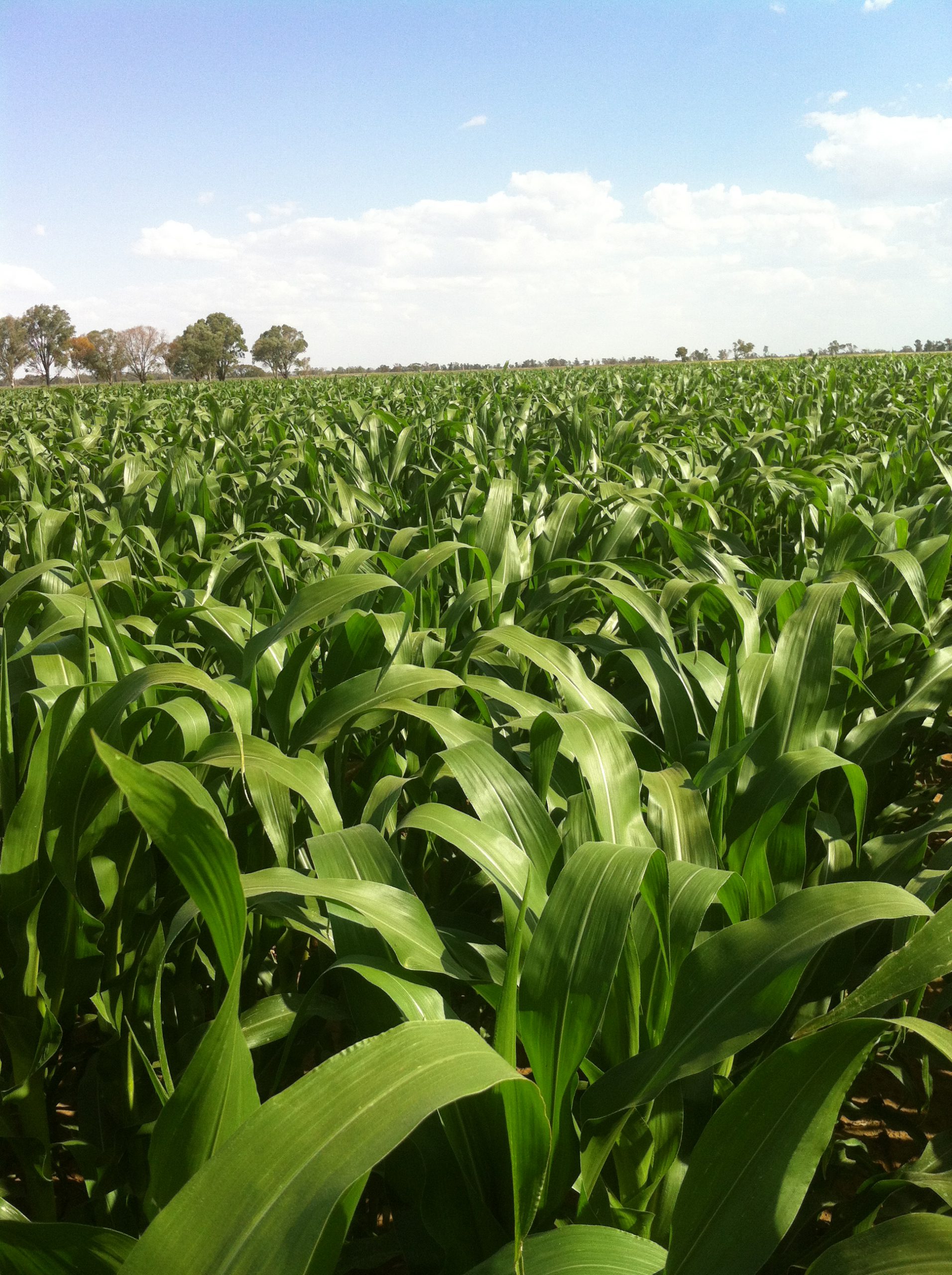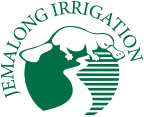FAQs
Jemalong Irrigation Limited (JIL) is an unlisted public company formed during March 1995 to facilitate the privatisation of the Jemalong Wyldes Plains Irrigation District.
The company employs about 5 people and facilitates the delivery of water to farm boundaries via approximately 300KM’s of channels.
The existing Water Conservation and Irrigation Commission of NSW opened the Jemalong and Wyldes Plains Irrigation District and water was made available to 81 farms by 1941.
Jemalong Wyldes Plains District was privatised in March 1995 to become Jemalong Irrigation district, managed by Jemalong Irrigation Limited.
Each irrigator landowner in the district is a shareholder in the company. Shares are held in proportion to the delivery entitlements held by each member.
The company diverts on average approximately 35,000 Megalitres of water from the Lachlan River each year to approximately 100 entities.
The district comprises more than 96,000 hectares of farming land of varying soil types capable of supporting a wide range of cropping and livestock enterprises.
JIL members collectively hold approximately 70,500 ML of water entitlements.
Q1: Will I as a member of JIL be responsible for any infrastructure works (capital or R&M)?
All works to JIL infrastructure are shared proportionally by all shareholders and covered in the annual levied charges and/or funded by part of the JIL investments. The only times a member entity will be charged for remedial works is when they are responsible for directly destroying/damaging JIL infrastructure.
Q2: What are the advantages of being an irrigator within JIL rather than the river?
- Gravity fed means we are not subject to rising electricity and fuel costs.
- Utilisation of our bulk licence allows JIL members the opportunity to:
- maintain in excess of 200% on their licences (at the discretion of the JIL Board)
- irrigate while only having “Hold Water” (at the discretion of the JIL Board)
- potentially eliminate transfer fees when buying/selling water within JIL
- Staff and Board looking after your interests on the river and with Government policy.
- High delivery rates that aren’t limited by pump sizes.
- Bulk water ordering for JIL members means usually water can be sourced well within the 6 days lead time from Wyangala to our river offtake. JIL has an 8 day lead time from customer’s ordering to delivery at the customer’s outlet but this can be as little as one day.
- Regular newsletters from JIL to members ensures they are kept abreast of issues and opportunities.
- Representation of JIL members interests at Local, State and Federal Government levels.
- Representation of JIL members interests in common interest industry groups such as Lachlan Valley Water.
- Any potential irrigators within Jemalong should contact the General Manager to discuss specific opportunities that may be available to your enterprise.
Q3: Are allocations within JIL the same as the river?
All allocations on the river are mirrored within JIL.
Q4: When does the JIL system close down for maintenance?
The JIL system generally closes down 1st June to 15th August. The system needs to close down for 1 to 2 months annually for essential R&M. We endeavour to divert water whenever there are sufficient orders.
Q5: Who owns the channels and outlets?
JIL owns all the delivery channels and outlets. Members are responsible for all on farm channels from their metered outlet. JIL does not have easements over the land but has the right to unimpeded access the land 20 metres on both sides from the centre of the channel. This 20m zone must not be impeded by landowners’ infrastructure such as sheds and fences. The authority to operate, maintain and access the channels is under the NSW Water Management Act 2000.
Q6: Can I buy and sell temporary water in and out of JIL?
Water can be bought into JIL and used at the normal usage rates with a 25% deduction for conveyance. If the water transferred in is used in following years, the 25% is returned. If water that was originally allocated to the JIL licence is transferred out, then there is an applicable exit fee. Please refer to the JIL Schedule of Charges. Temporary water traded onto and then off the JIL licence in the same or following year, does not attract this fee. Internal trades attract no JIL fees or deductions.
Q7: Am I guaranteed of getting my AWD water delivered?
JIL as a general rule does not have capacity constraints. JIL is responsible for all conveyance losses from the river to your outlet and has also implemented the policy that we will source conveyance losses in the unlikely event that the company has a deficiency. However there is no guarantee from either Water NSW or JIL that water will be delivered.
Q8: How do I know my water usage, account balances, etc?
JIL maintains all usages, allocations, transfers and sales in a database from which we print “Water Account Statements”. These individual customer statements show all entitlements and respective movements of temporary water. These are sent out periodically via a hard copy. JIL members can contact the office at any time to check on transactions affecting their water balances. Meter readings from outlets can be read in the field to obtain real time usages.
Q9: When am I billed for fixed and usage charges?
JIL tallies all usages periodically and totals them all at the end of each month for company reporting purposes. Members are charged fixed and usage charges at the end of each quarter, attributable to that quarter in arrears (September, December, March and June) and due 30 days from the invoiced date.
Accounts with unpaid balances are sent out at the end of each month. Interest is accrued on outstanding balances.
Q10: How is JIL structured?
The seven Directors are elected by members. Elections take place every two years with directors standing for a four year term before retiring or standing for reelection. Elections every two years are either for four positions or three positions.
- The Chair is elected by the Directors.
- Directors need not be JIL members.
- The Directors appoint and oversee the management and staff.
Q11: Is JIL financially secure?
JIL has developed an extensive investment portfolio to fund the future infrastructure needs of its members.
JIL produces an annual report each year that is distributed to all members.
JIL is currently classed as income tax exempt and as such does not currently pay income tax.
Q12: Is water within JIL the same value as the river?
Water can be permanently traded into and out of JIL with no volumetric or financial penalty, therefore there is no reason for any differential in pricing in this category of water.
Q13: Are there any limits to crop types or enterprises within JIL?
The NSW Govt has the right to impose land use classifications anywhere in NSW through instruments such as the EPA. JIL complies with all such requirements.
JIL imposes no limits to the type of crops able to be grown within our area.
Lucerne, cotton, cereals, jojoba, citrus, maize, beans, sorghum, millet and sunflowers are a few of the crops commonly grown here.
The array of soil types lends the area to accommodate many different types of cropping.
Intensive stocking enterprises must go through the usual approval processes with the relevant authorities.
Q14: How do I know what the water will cost me?
JIL distributes to members and publishes on our website a “Schedule of Charges” every June for the following water year (1st July to the 30th June).
Q15: How does a member access the company?
Members are encouraged to initially contact the General Manager at the JIL offices. If necessary the issue is addressed at the following Board meeting which is held monthly at the JIL offices. An AGM is held every year with all JIL members encouraged to attend.
Q16: Can I manage my own start/stop times and delivery volumes?
Only JIL staff are permitted to operate JIL infrastructure unless express permission is granted by JIL staff. JIL generally requires 24hrs notice for any stop time brought forward.
Q17: Does JIL have any obligations to the Government as to how it operates?
JIL holds an EPA licence and an Irrigation Corporation Operating Licence. These have requirements that JIL must abide by such as monitoring ground water levels and the compiling of an annual environmental report. The associated obligations generally do not impact JIL members directly and are managed by JIL. JIL has the obligation and right to cease delivery of water if it is contributing to a third party loss or pollution.
Q18: What categories of entitlements are there within JIL?
1. Shares: JIL, like every other company has shares. Shares are held at the rate of 1 share per 1 Delivery Entitlement within JIL. JIL will not pay dividends on shares. Voting privileges are attached to shares at a rate of 1 share per voting right. e.g. 10 shares/DE = 10 votes. There were 79,350 voting shares as of 30/6/24.
2. Water Entitlements: water entitlements within JIL are the same as the river and can be General Security (GS), High Security (HS) or Stock & Domestic(S&D). GS and HS water can be traded permanently within, into and out of JIL. S&D water is fixed to its current holding (farm) and cannot be traded.
3. Delivery Entitlements: Delivery Entitlements (DE’s) are a members’ volume of access. E.g.: If a member holds 200DE’s then they have the right to have200ML of water delivered in every water year (if the member has the temporary water. Members can acquire more DE’s permanently or temporarily from other JIL members not utilising their DE’s in that year. Water usage over your available DE’s in any water year will incur a higher usage charge (Casual Charge as per the JIL Schedule of Charges).
Q19: How are fixed charges calculated?
- Government charges based on Water Entitlements.
- JIL charges based on delivery entitlements, entities, and outlets.
Q20: Do my fixed charges apply after I have sold my water entitlements?
Yes, JIL fixed charges based on delivery entitlements, entities, and outlets continue to be charged until they are terminated, disposed of or removed from JIL.
Q21: How do I ensure that I will have no fixed charges when I sell my Water Entitlement?
- Transferring Delivery Entitlements to the purchaser. This can be done if the buyer is inside JIL and should be made a condition of the sale and/or by terminating your Delivery Entitlement with JIL.
- Applying to JIL to remove all applicable JIL outlets.
Water Supply Contract
For a more detailed understanding of obligations and definitions relating to being a shareholder/customer within JIL, please refer to the JIL Water Supply Contract which all members of JIL must sign before they are eligible for water deliveries or any other benefits of being in JIL.
Disclaimer
All information within this document is correct as of the time of writing. All parties should seek their own independent legal advice on all related matters prior to making any decisions.

